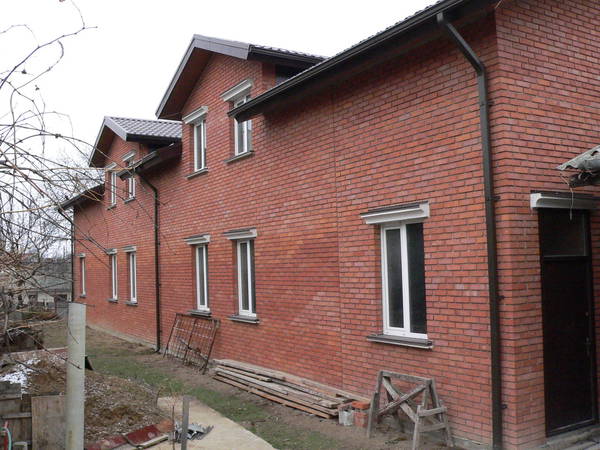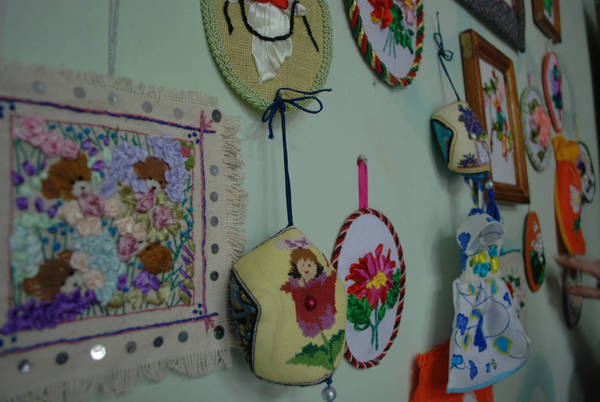Transnistria or Moldavian Transnistrian Republic declared independence from Moldova in 1990. However, internationally it is still seen as a part of Moldova. When entering the country from the Moldovan side, visitors go through triple security, which is somewhat easy on the Moldova side. Visitors show their passports to peacekeeping forces, who are Russian troops, and finally they must fill in a form and have their passports re-checked by Transnistria customs officers.
Past the border crossing in the southern part of the country, the Bender town also known as Bender lies. The dark impression when passing through the town is strengthened by the gray weather – along the way you can see small houses with yellow pipes for gas distribution. Blocks of flats have their greatest glory behind them and in one house there are seen strange holes, which like the remains of bullets. People walk on the streets in peace. Luxury and ordinary cars, newer or very old ones, overtake each other. A traffic jam on major roads does not occur. People patiently wait for trolley buses, comparing to Czech buses they are very old.
According to estimates from 2004, nearly one hundred thousand inhabitants live in this city, where you can find a shop called Prague and a large Western-style shopping mall. As well as in Moldova, Transnistria has to deal with the phenomenon of middle aged men and women leaving the country to find work, and supporting the rest of the family by living abroad. Children of different ages live under the supervision of grandparents and other relatives. They spend much time on the street.
The work that Caritas Bender - belongs to Caritas Moldova network - does is more than necessary. Director of the Caritas, who is also local priest, Father Marcin Janusz, works with other staff to offer alternatives for how local children can spend their free time. Children can use the parish dining room or participate in various art workshops of decorating fabrics (tie-dye method), different styles of embroidery or - very popular - making toys. Similar workshops are held in a nearby orphanage, where children work with wood.
The funds that Caritas Bender obtained from Three Kings Charity collection of Caritas Czech Republic are used for the salaries of the lecturers of the workshops, for paying the electricityand water consumption, for materials used in the various workshops, and partly also for the food that the children receive in the dining room. Father Marcn adds: "All other funds that are needed, the parish gives. Therefore, my trips to the parishes in Poland are very important, so we can have some other funds. It's also such a collection. I just do not drive with three kings, but myself."
 Father Marcin as a director of Caritas Bender and as the spiritual head of the local parish has many plans – to build and establish a new parish house, where the dining room for children and art workshops will be moved to. A dormitory for students who are studying in the city and whose homes are too far away to be able to travel daily to school will be placed in the house. Another project of Caritas Bender in cooperation Caritas Luxembourgh is to establish health centers, which would include first aid courses for children and students.
Father Marcin as a director of Caritas Bender and as the spiritual head of the local parish has many plans – to build and establish a new parish house, where the dining room for children and art workshops will be moved to. A dormitory for students who are studying in the city and whose homes are too far away to be able to travel daily to school will be placed in the house. Another project of Caritas Bender in cooperation Caritas Luxembourgh is to establish health centers, which would include first aid courses for children and students.
"I hope we enthuse students for volunteering. Recently, medical students, who had experience in pediatrics, came up with an idea themselves to gather gifts for children on the pediatric ward at the hospital from parishioners who responded positively. Someone brought a little toy, someone brought candy. Students then gave everything to the hospital, to the children's ward." Father Marcin praises the cooperation of the students.
Only time will tell whether the plans will be met. Likewise, it will appear that in the end of 2011, the elected new president of the Transnistrian Moldovan Republic, Evgeni Vasiljevic Shevchuk, chairman of the opposition movement Resurgence of Transnistria, will fulfill the hope that voters have given in him. The task will not be easy. During the election he had a strong opponent, Anatoly Kaminski, leader of the strongest opposition party called Renewal. Mr. Shevcuk won also against the will of the Kremlin, which has its own intentions with the country in the East Europe.












